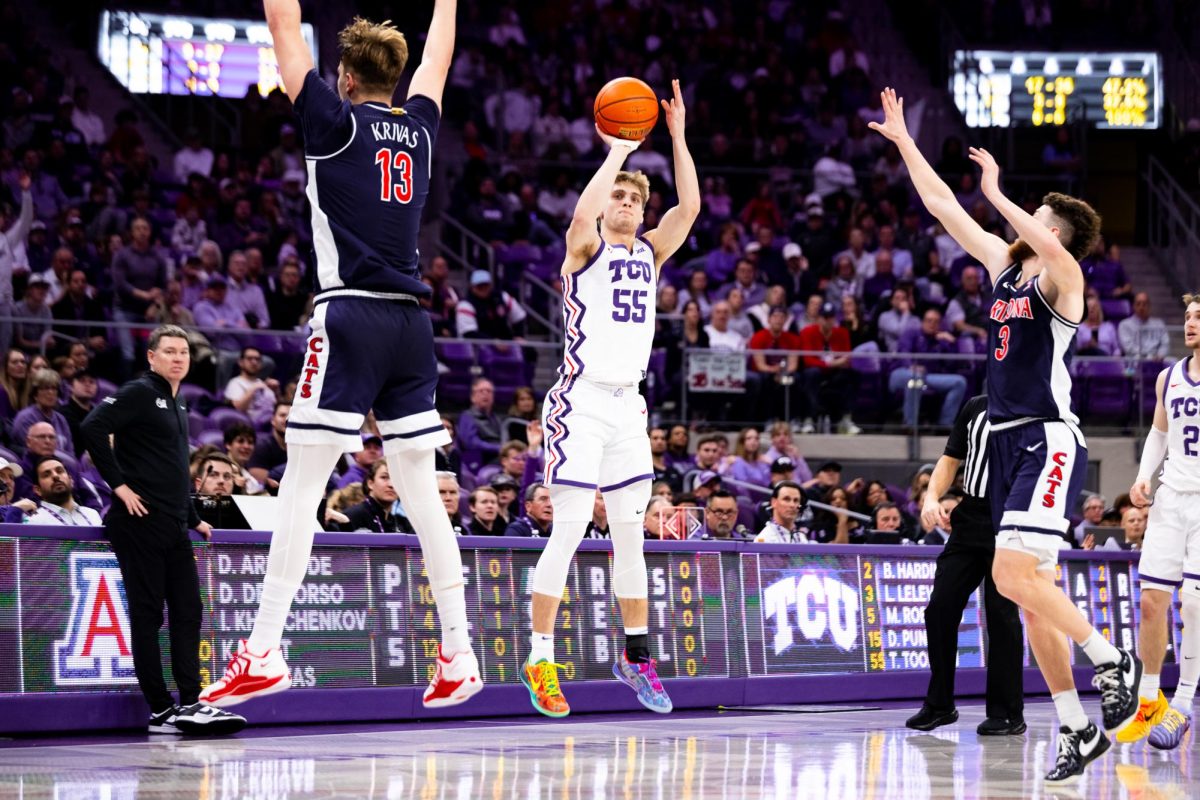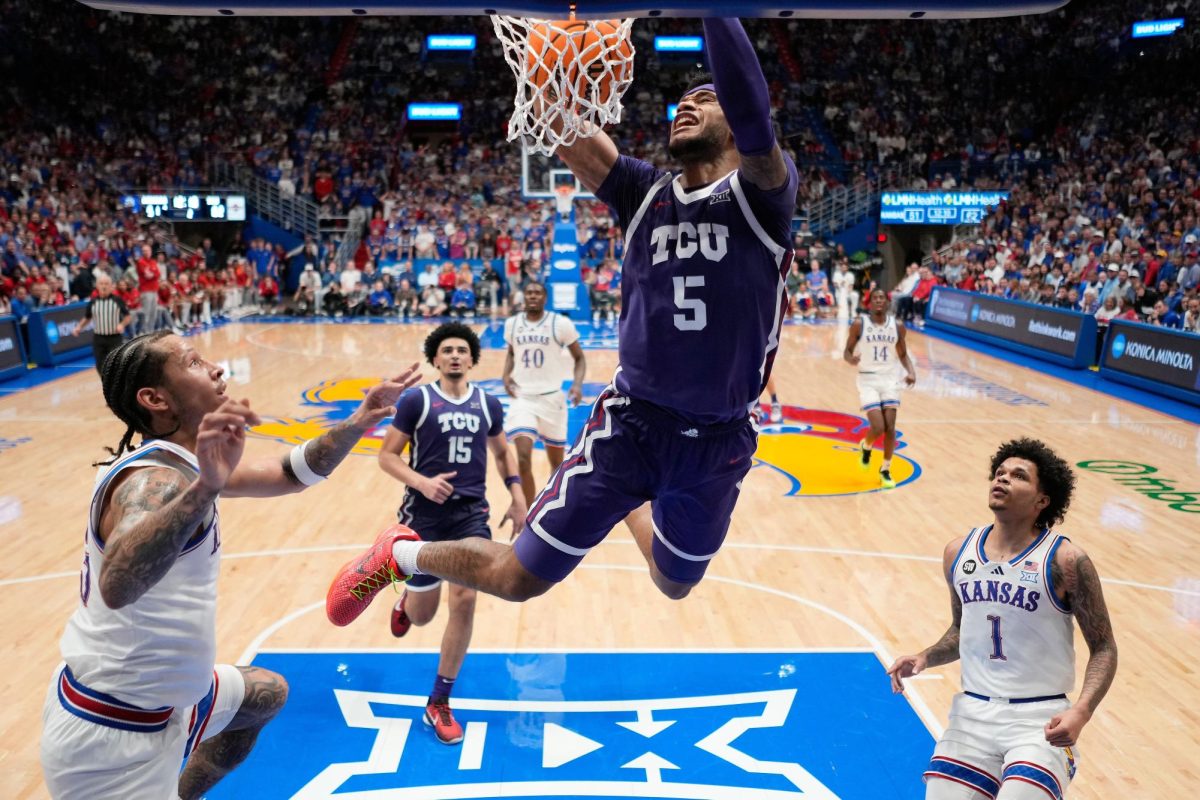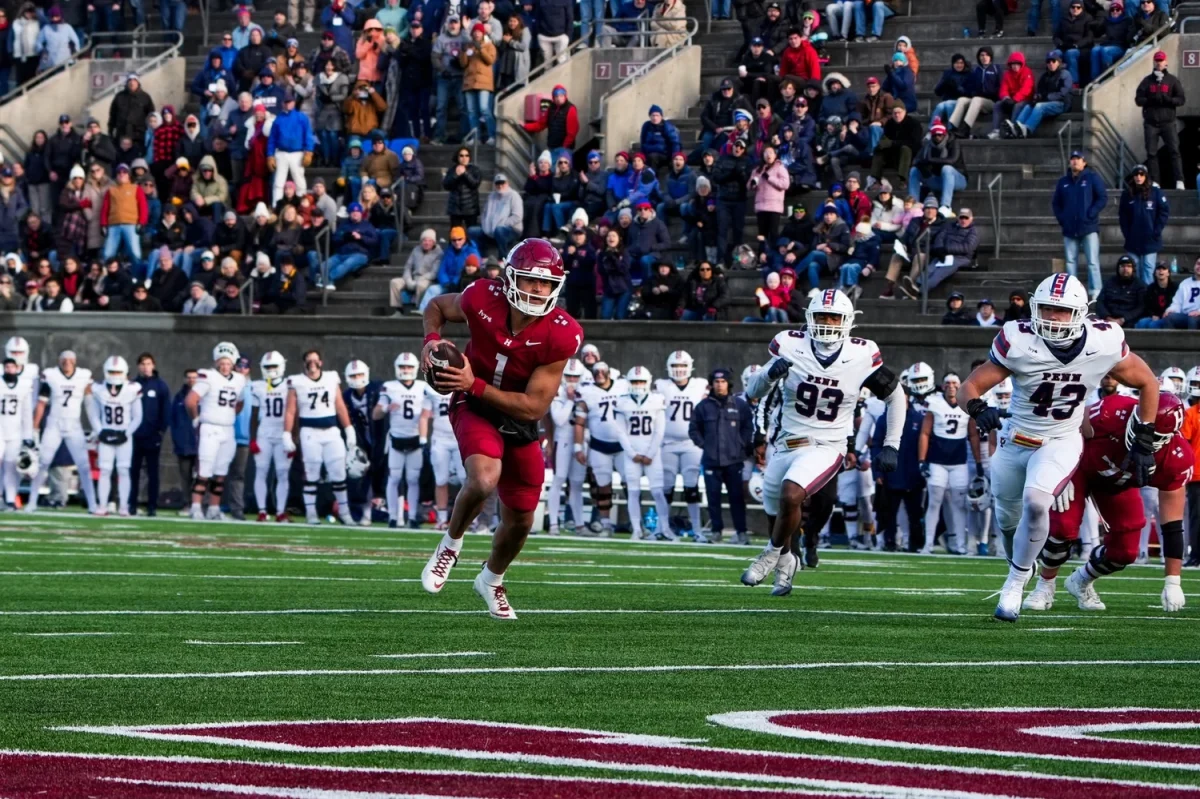If former Big 12 commissioner Chuck Neinas gave TCU the key to the door, then Tanner Brock nudged it open and Ed Wesley blew it off the hinges.
That door being the opportunity for TCU to prove its big boy status, and those hinges being left in the path of Wesley, who, according to the Fort Worth Star-Telegram’s Randy Galloway, won’t return to the team next year due to family reasons.
Wesley, who was named Mountain West Freshman of the Year in 2009, ran for more than 1,000 yards in 2010 and was second on the team in rushing last year and would have been the Frogs’ starting running back as a senior this fall.
Wesley, of course, was a part of TCU’s three-headed monster at the position, joined by fellow senior Matthew Tucker and junior Waymon James. None of them ran for more than 900 yards last season, not for lack of talent, but for lack of touches. They competed each other right off the field, forcing the TCU coaching staff to create a three-way starting job.
Both Tucker and James are capable of sustaining the Frogs’ running game – Tucker getting a majority of goal line touches with James serving as the flash back. Even Aundre Dean, who’ll likely slip into the backup role of James and Tucker’s shared starting position, ran for more than 2,500 yards his senior year of high school and was a five-star recruit before signing with UCLA and transferring to TCU in 2009.
So yeah, it sounds bad – awful, really – that before it even makes it to Big 12 media days, TCU loses its starting running back, but it shouldn’t be as big of a loss as it would to some schools with weaker running games.
Still, it’s somewhat comical what’s happened to the Frogs the past four months.
The biggest objection to TCU – or Boise State, for that matter – joining a BCS conference and leaving behind the New Mexicos and Colorado States of the world is this: Depth, the ability to not only be good with your starters but be just as good with your backups.
Does TCU have it?
Well, here’s a Litmus test for you: Take away your best overall player (Tanner Brock), his replacement (the unnamed “backup linebacker with potential” in Galloway’s report), your best running back (Ed Wesley), your starting defensive tackle (D.J. Yendrey) and your starting safety (Devin Johnson) in a secondary that struggled last year.
And, just to be sure you’re not slipping past the bouncer, throw out two of your backup offensive linemen (Ty Horn and Nykiren Wellington), both of whom could have seen playing time next year.
That’s what’s happened to TCU since February, when four players were arrested on suspicion of selling drugs. In a program heralded for stability and consistency, players – very key players – can’t stop falling off the wagon for some reason or another.
No fault to Gary Patterson. In fact, more power to him for handling the departures of the four in February like he did and for how he’ll likely handle these more recent defections, too.
But Patterson, somewhere in that game film-filled brain of his, has to be thinking, “Could the timing be worse?”
Here’s TCU, strolling along through the mid-majors, minding its own and beating everyone from Mobile to Pasadena, and when it gets its ticket to ride, it gets gutted. Purely gutted.
But that’s why you have depth and that’s why it matters so much. How do you recover from the loss of one guy? How about two? Three? Seven?
True depth doesn’t see a number; it sees a need and fills it.
For years, mid-major fans have been arguing two things: 1) Their teams DO have the depth to compete at the automatic-qualifier level every week and 2) the whole concept of depth in BCS conferences is really all one big myth, that the quality of players on those squads and those on successful mid-majors are relatively the same.
Well, Frogs, time to prove or get proved.




